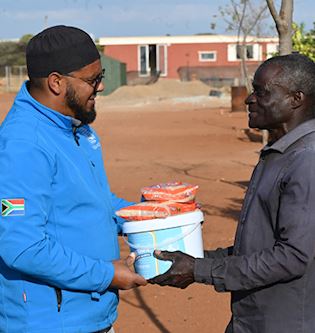Reflecting on the Prominent Women of Islam

During the month of August, people throughout the country celebrate the important role of women in society and highlight the accomplishments of notable women. Often missing from these conversations are the many Muslim women throughout history and contemporaneously who have made and are continuing to make important contributions to society and the world. In recognition of these contributions, let's look at some of the most important women in Islam.
Throughout history, Muslim women have played a significant role in shaping the Islamic world and the world at large. From politicians to scholars, artists to activists, Muslim women have made remarkable contributions to society in various fields.
Khadijah bint Khuwaylid (555-619 CE)
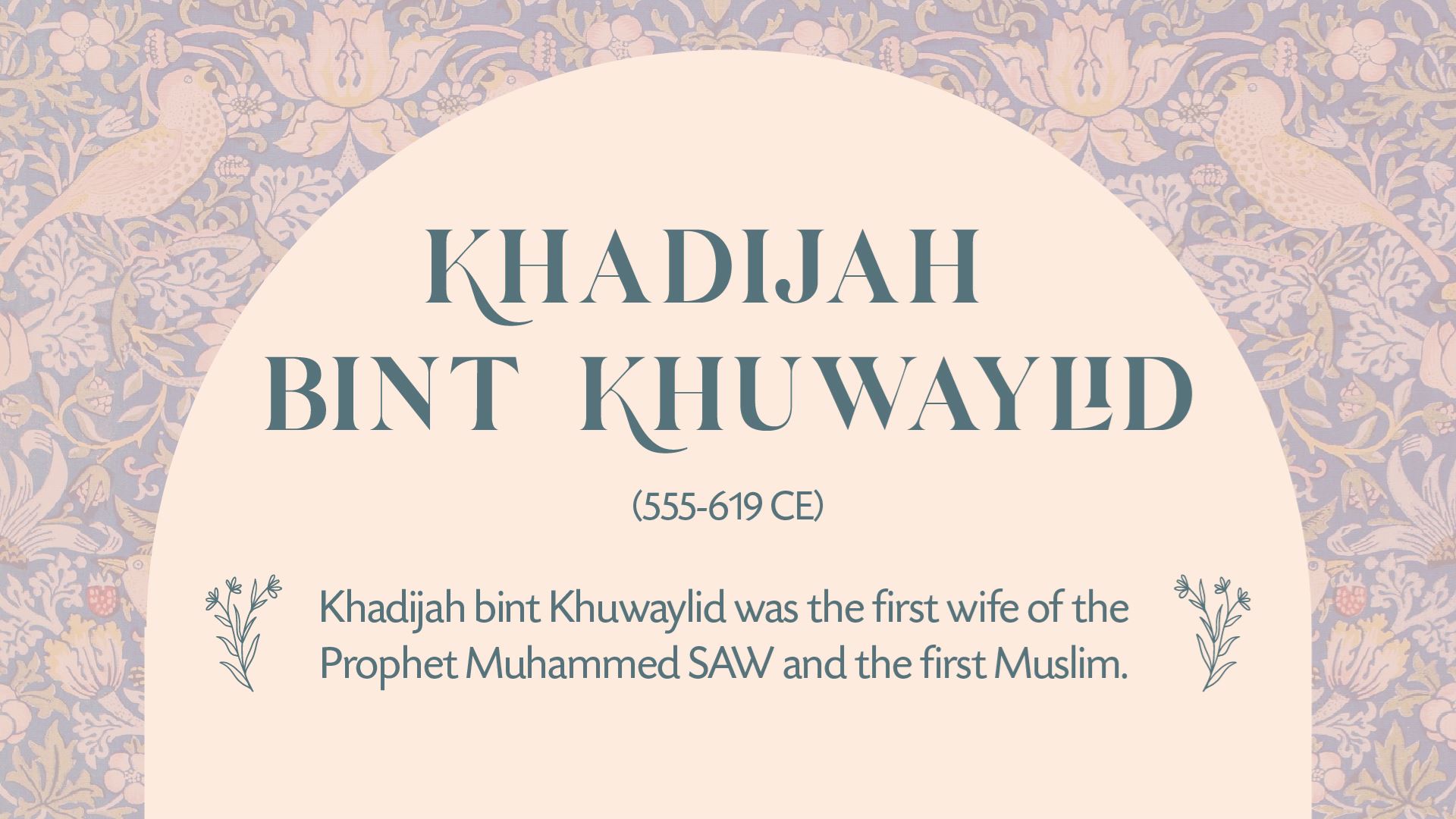
Khadijah bint Khuwaylid was the first wife of the Prophet Muhammed SAW and the first Muslim. She was one of the wealthiest merchants in Makkah. She was a strong supporter of her husband’s mission and played a significant role in the early development of Islam. Khadijah RA was known for her intelligence, business acumen, and her unwavering commitment to social justice. She was also the mother of four daughters and two sons, including Fatimah, who is considered a role model for Muslim women.
Even before her famous marriage to the Prophet Muhammad, she was an important figure in her own right, being a successful merchant and one of the elite figures of Mecca. She played a central role in supporting and propagating the new faith of Islam and has the distinction of being the first Muslim. As the Prophet Muhammad himself is believed to have said in a hadith preserved in Sahih Muslim: “God Almighty never granted me anyone better in this life than her. She accepted me when people rejected me; she believed in me when people doubted me; she shared her wealth with me when people deprived me; and God granted me children only through her.”
Aisha bint Abu Bakr (614-678 CE)
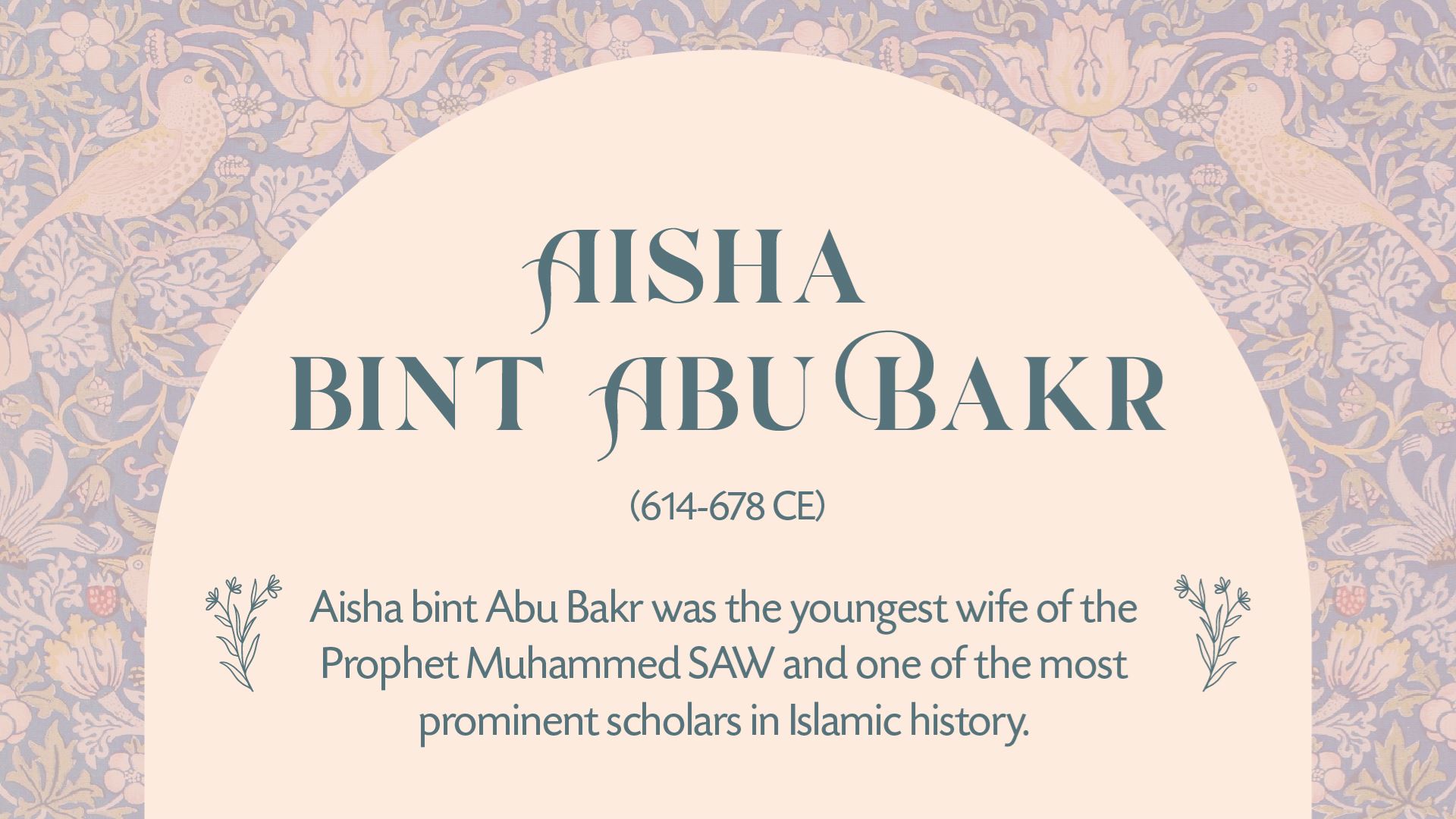
Aisha bint Abu Bakr was the youngest wife of the Prophet Muhammed SAW and one of the most prominent scholars in Islamic history. She is known for her extensive knowledge of Islamic law and hadith, which she transmitted to future generations. Aisha was also a political leader and played a crucial role in the early Islamic community. She was known for her intelligence, wit, and strong personality.
Fatimah bint Muhammed (605-632 CE)
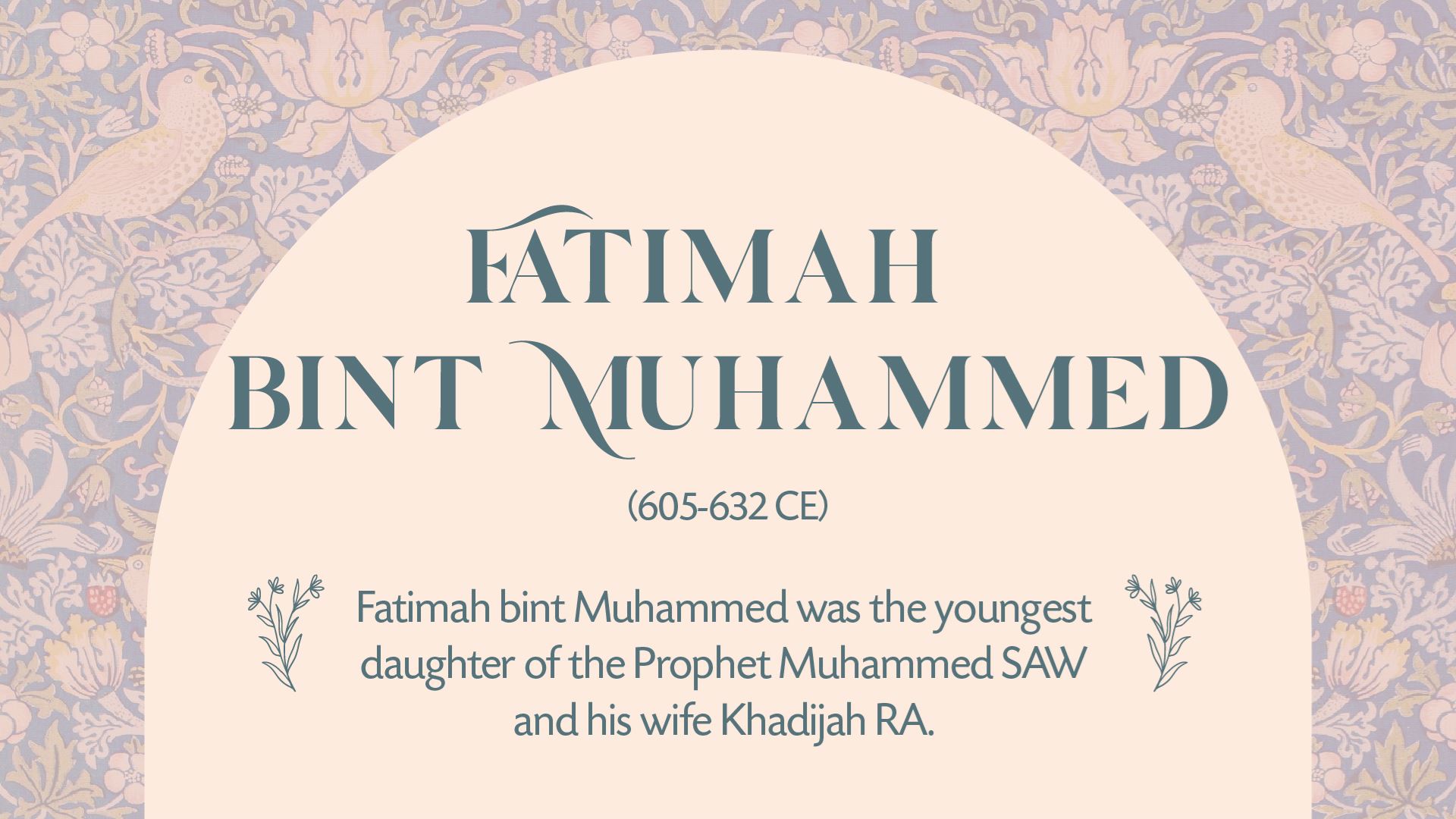
Fatimah bint Muhammed was the youngest daughter of the Prophet Muhammed SAW and his wife Khadijah RA. She is considered a role model for Muslim women and is known for her piety, courage, and dedication to her family, and often called the “mother of her father,” due to her love for him. Fatimah was also a wife and mother, and her descendants (especially through her two sons, al-Hasan and al-Husayn) are highly respected in the Islamic world. She played a significant role in the early development of Islam and is considered one of the most important figures in Islamic history.
Zainab bint Ali (626-682 CE)
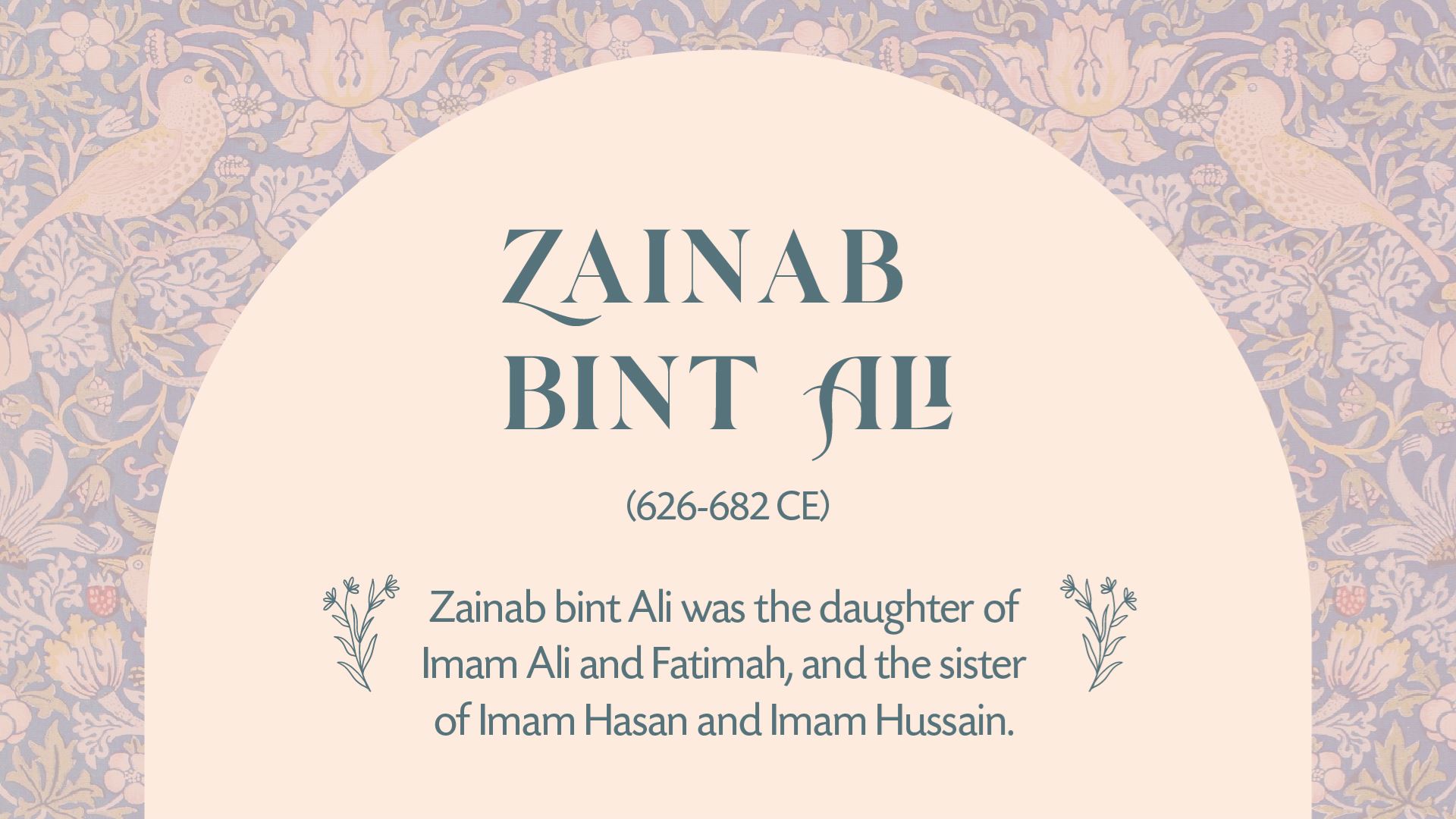
Zainab bint Ali was the daughter of Imam Ali and Fatimah, and the sister of Imam Hasan and Imam Hussain. She is known for her courage and eloquence, particularly during the events of Karbala. Zainab played a significant role in keeping the memory of Karbala alive and spreading the message of social justice and resistance. Her speeches and sermons continue to inspire Muslims today.
Sumayyah bint Khabbat (550-615 CE)
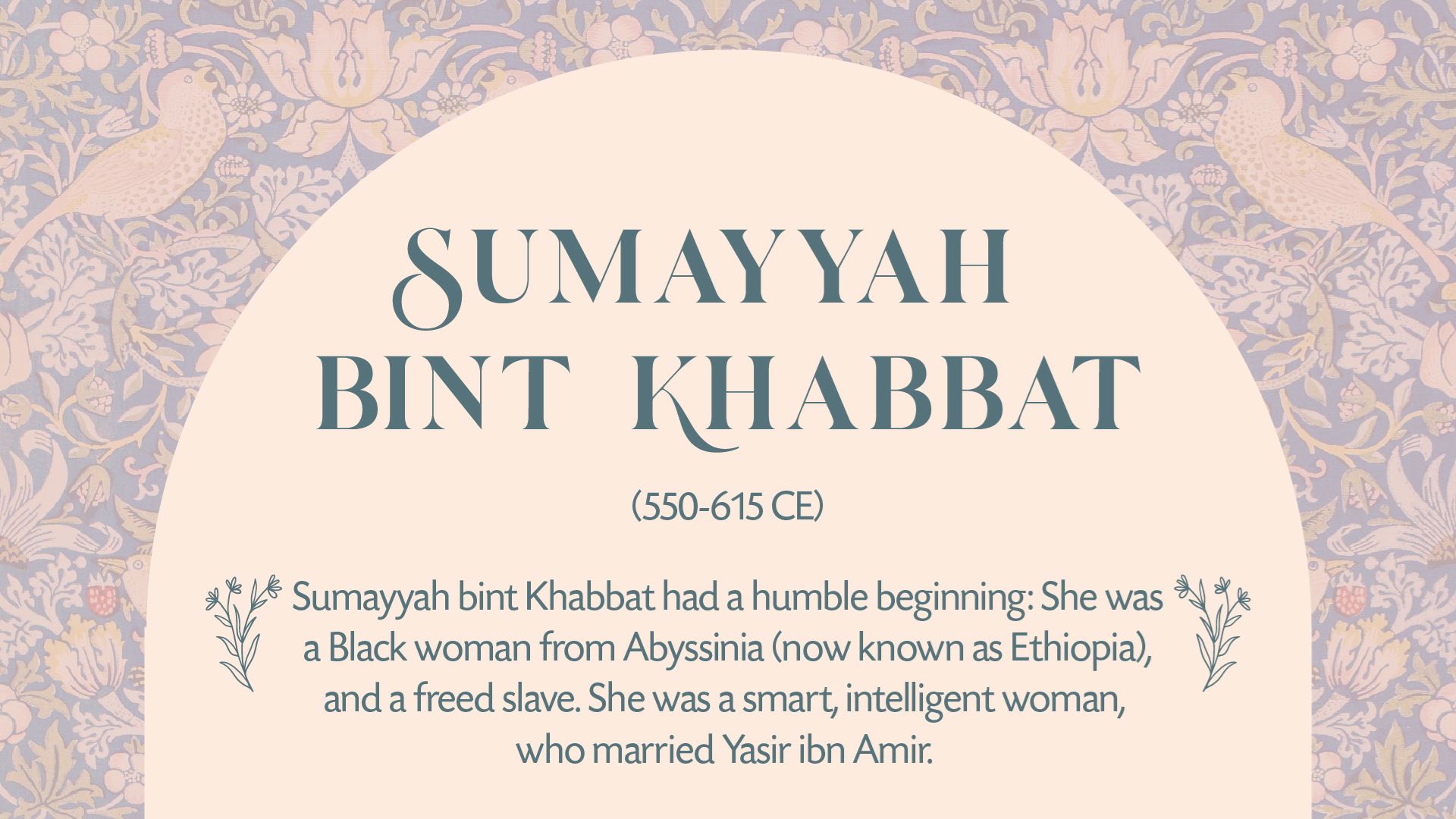
Sumayyah bint Khabbat had a humble beginning: She was a Black woman from Abyssinia (now known as Ethiopia), and a freed slave. She was a smart, intelligent woman, who married Yasir ibn Amir. The two had three sons and Sumayyah raised them to be the kind, respectful men everyone in the Quraysh tribe knew them to be. She was a devoted mother and was often praised for successfully raising children in a kind and loving manner.
When the Prophet Muhammed SAW began calling people to Islam, she was one of the first seven people to accept that call. Unfortunately for Sumayyah and her family, who also accepted Islam soon after her, the Quraysh were looking for any way to put a hold on the Prophet Muhammed’s mission. They couldn’t directly hurt the Prophet SAW because of his status as Abu Talib’s nephew, but they could hurt the regular citizens that were following him. And so, Sumayyah RA, her husband Yasir, and their two sons became the target of the Quraysh. Sumayyah RA became the first ever shaheed, the first martyr in Islam. Her husband Yasir was soon killed as well, and he became the second shaheed of Islam.
While many people may be familiar with the accomplishments of contemporary Muslim women (whether heads of state, scholars, or activists), the fact that women also played a pivotal role in the pre-modern Muslim world as intellectuals, poets, mystics, rulers and warriors tends to be less appreciated.













